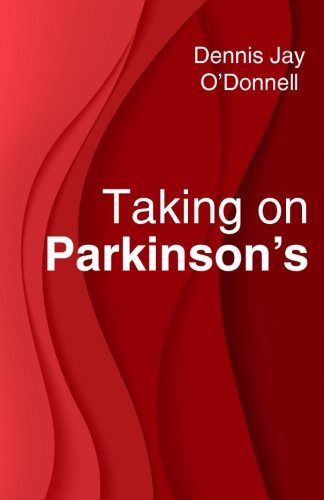Dennis Jay O’Donnell, Ph.D., is an author, economist and reader of history. He has been a life-long fly fisherman who knows first hand the topography of Colorado and Montana. For years he was a forensic economist and a professor of economics at the University of Montana. He and his wife live in Missoula, Mt.
Practicality and a large dose of humor …
Taking on Parkinson’s is one man’s journey to lead a full life with PD by tackling and adapting to the disease’s physical and emotional idiosyncrasies. Diagnosed with Parkinson’s at the age of 54, this retired economist has dealt with every difficulty the chronic disease has thrown at him with practicality and a large dose of humor.
Instructed by his wife that they were going to “do something outside your comfort zone every year,” Dennis O’Donnell has dealt with airline rigmarole, zip lining freedom, freezing and trembling during handball, grandchildren who see him as an overgrown playmate, and being bodily lifted into a rocking catamaran in the Caribbean by a woman barely half his size — all in the name of keeping on keeping on.
He talks about facing the same problems as others affected by the disease: the early signs of Parkinson’s, Parkinson’s disease gait, freezing in place, unexpected emotions, side effects of PD medication and the intricacies of Deep Brain Stimulation (DBS).
The book gives the Parkinson’s disease patient and the Parkinson’s caregiver a jargon-free glimpse of what PD is like and how life can be fully lived in spite of this — at the moment — incurable disease.
O’Donnell’s last book, Taking on Parkinson’s, discussed the issues of daily living with a chronic disease. Dr. O’Donnell’s new fiction, Sunrise in the West is a novel loosely based on O’Donnell’s childhood experiences with his Aunt and Grandmother in the Sange de Christo Mountains. The bomb explosion explained in the book did happen although the situation described is fictional along with the characters. However, many of the challenges the characters faced in the 1950s are still with us, which makes this novel relevant today. What’s more, O’Donnell insists that all of us would better off if we trusted the intuition of a dog.

